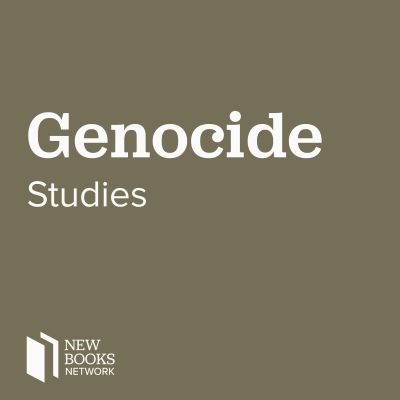Interviews with Scholars of Genocide about their New Books Support our show by becoming a premium member! https://newbooksnetwork.supportingcast.fm/genocide-studies
https://newbooksnetwork.com/category/politics-society/genocide-studies/
Gesamtlänge aller Episoden: 22 days 8 hours 30 minutes
Olga Gershenson, “The Phantom Holocaust: Soviet Cinema and Jewish Catastrophe” (Rutgers UP, 2013)
Fifty years of Holocaust screenplays and films -largely unknown, killed by censors, and buried in dusty archives – come to life in Olga Gershenson‘s The Phantom Holocaust: Soviet Cinema and Jewish Catastrophe (Rutgers University Press, 2013).
Adam Jones, “The Scourge of Genocide: Essays and Reflections” (Routledge, 2013)
Being an academic is usually a forward-looking career. You are generally focused on the next book or the next project (or perhaps the next class period). Certainly, there may be times when you rethink an old judgment or return to a subject you’ve ign...
Robert J. Richards, “Was Hitler a Darwinian?: Disputed Questions in the History of Evolutionary Theory” (University of Chicago Press, 2013)
In his new collection of wonderfully engaging and provocative set of essays on Darwin and Darwinians, Robert J. Richards explores the history of biology and so much more. The eight essays collected in Was Hitler a Darwinian?
Philip Dwyer and Lyndall Ryan, “Theaters of Violence: Massacre, Mass Killing, and Atrocity through History” (Berghan Books, 2012)
We spend a lot of time arguing about the meaning and implications of words in the field of genocide studies. Buckets of ink have been spilled defining and debating words like genocide, intent, ‘in part,’ and crimes against humanity.
Waitman Beorn, “Marching into Darkness: The Wehrmacht and the Holocaust in Belarus” (Harvard UP, 2013)
The question of Wehrmacht complicity in the Holocaust is an old one. What might be called the “received view” until recently was that while a small number of German army units took part in anti-Jewish atrocities,
Jennie Burnet, “Genocide Lives in Us: Women, Memory and Silence in Rwanda” (University of Wisconsin Press, 2012)
In our fast-paced world, it is easy to move from one crisis to another. Conflicts loom in rapid succession, problems demand solutions (or at least analysis) and impending disasters require a response. It is all we can do to pay attention to the present...
John Roth and Peter Hayes, “The Oxford Handbook of Holocaust Studies” (Oxford UP, 2010)
We’ve talked before on the show about how hard it is to enter into the field of Holocaust Studies. Just six weeks ago, for instance, I talked with Dan Stone about his thoughtful work analyzing and critiquing the current state of our knowledge of the su...
Deborah Mayersen and Annie Pohlman, “Genocide and Mass Atrocities in Asia: Legacies and Prevention” (Routledge, 2013)
Genocide studies has been a growth field for a couple of decades. Books and articles have appeared steadily, universities have created programs and centers and the broader public has become increasingly interested in the subject. Nevertheless,
Dan Stone, “Histories of the Holocaust” (Oxford UP, 2010)
I don’t think it’s possible anymore for someone, even an academic with a specialty in the field, let alone an interested amateur, to read even a fraction of the literature written about the Holocaust. If you do a search for the word “Holocaust” on Amaz...
Christopher Powell, “Barbaric Civilization: A Critical Sociology of Genocide” (McGill-Queen’s University Press, 2011)
What exactly is genocide? Is there a fundamental difference between episodes of genocide and how we go about our daily life? Or can it be said that the roots of the modern world, or civilization itself, has the potential to produce genocide?
